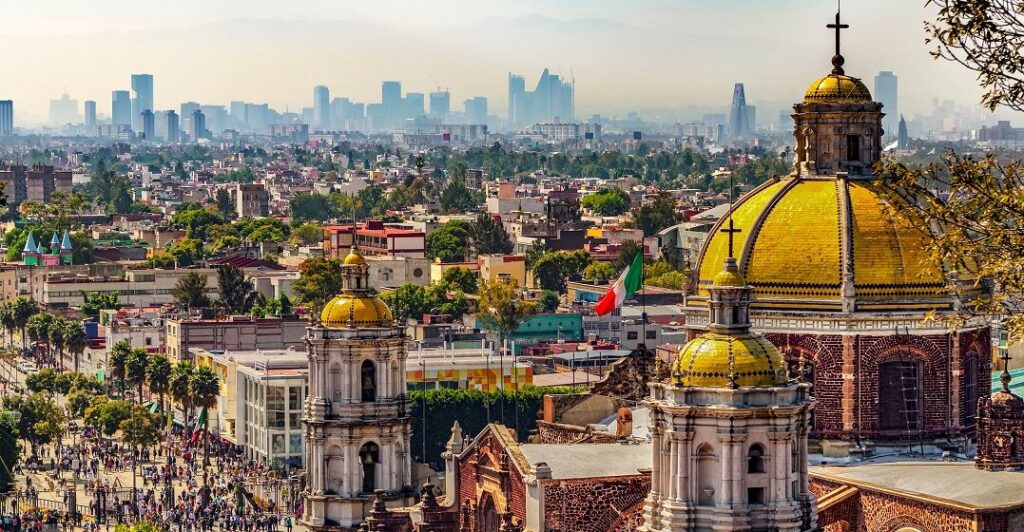What is the best Mexico City to live?

Are you considering moving to Mexico City but unsure which neighborhood is the best fit for you? Look no further! In this guide, we will explore the different factors to consider when choosing a neighborhood, the top neighborhoods to live in, the cost of living, finding the best accommodation, getting settled in the city, healthcare and safety, transportation options, and embracing the culture and lifestyle in Mexico City.
- Understanding the Appeal of Mexico City
- Factors to Consider When Choosing a Neighborhood
- Top Neighborhoods to Live in Mexico City
- Exploring the Cost of Living in Mexico City
- Tips for Finding the Best Accommodation
- Getting Settled in Mexico City
- Healthcare and Safety in Mexico City
- Transportation Options in the City
- Embracing the Culture and Lifestyle in Mexico City
- Conclusion
- Frequently Asked Questions
Understanding the Appeal of Mexico City
Mexico City, the capital and largest city of Mexico, is a bustling metropolis known for its rich history, vibrant culture, and diverse neighborhoods. With its world-class museums, lively markets, delicious cuisine, and beautiful architecture, it's no wonder why so many people are drawn to this dynamic city.
Factors to Consider When Choosing a Neighborhood
When deciding where to live in Mexico City, it's important to consider factors such as safety, proximity to amenities, transportation options, cost of living, and the overall vibe of the neighborhood. Each neighborhood has its own unique charm and appeal, so it's essential to do your research and find the one that suits your lifestyle and preferences.
Top Neighborhoods to Live in Mexico City
Mexico City offers a wide range of neighborhoods that cater to different needs and preferences. Whether you're looking for a trendy and hip neighborhood like Condesa or Roma, a family-friendly area like Coyoacán or Polanco, or a more affordable option like Narvarte or San Rafael, there is something for everyone in this sprawling city.
- Condesa
- Roma
- Coyoacán
- Polanco
- Narvarte
- San Rafael
Exploring the Cost of Living in Mexico City
One of the main advantages of living in Mexico City is its relatively low cost of living compared to other major cities around the world. While the cost of living can vary depending on the neighborhood and your lifestyle, in general, expenses such as rent, groceries, transportation, and dining out are more affordable in Mexico City.
Tips for Finding the Best Accommodation
When searching for accommodation in Mexico City, it's important to consider your budget, desired location, and rental options. Whether you prefer a modern apartment, a traditional house, or a shared living space, there are plenty of options available. Utilize online platforms, work with local real estate agents, and consider visiting the neighborhoods in person to find the perfect place to call home.
Getting Settled in Mexico City
Once you've found your dream neighborhood and secured your accommodation, it's time to get settled in Mexico City. From setting up essential services such as utilities and internet to familiarizing yourself with the local grocery stores and healthcare facilities, taking these initial steps will help you feel more at home in your new city.
Healthcare and Safety in Mexico City
Mexico City has a wide range of healthcare options, including public and private hospitals, clinics, and pharmacies. It's recommended for expats to have medical insurance to ensure access to quality healthcare. As for safety, like any major city, it's important to take precautions and be aware of your surroundings. However, with proper precautions, Mexico City can be a safe place to live.
Transportation Options in the City
Mexico City offers various transportation options to navigate the city. The extensive metro system, buses, and taxis are popular modes of transportation for locals and expats alike. Additionally, biking and walking are great ways to explore the city and enjoy its vibrant streets.
Embracing the Culture and Lifestyle in Mexico City
Living in Mexico City means immersing yourself in its rich culture and vibrant lifestyle. From enjoying the traditional cuisine and visiting the iconic landmarks to attending festivals and exploring the local markets, there are endless opportunities to embrace the unique culture and lifestyle of this incredible city.
Conclusion
Mexico City offers a diverse range of neighborhoods, a vibrant culture, and a relatively affordable cost of living, making it an attractive destination for expats. By considering the factors that are important to you, exploring the top neighborhoods, understanding the cost of living, and taking advantage of the available resources, you can find the perfect place to call home in this vibrant city.
Frequently Asked Questions
1. Is Mexico City a safe place to live?
Mexico City has its safety challenges, but with proper precautions, it can be a safe place to live. It's important to be aware of your surroundings, avoid certain areas, and follow the advice of local authorities.
2. How much does it cost to rent an apartment in Mexico City?
The cost of renting an apartment in Mexico City varies depending on the neighborhood and the size of the apartment. On average, you can expect to pay between $500 and $1,500 per month for a one-bedroom apartment in a desirable neighborhood.
3. What are the best neighborhoods for expats in Mexico City?
Some of the best neighborhoods for expats in Mexico City are Condesa, Roma, Polanco, and Coyoacán. These neighborhoods offer a vibrant expat community, amenities, and a wide range of housing options.
4. What are the healthcare options for expats in Mexico City?
Expats in Mexico City have access to both public and private healthcare facilities. It's recommended to have medical insurance to ensure access to quality healthcare. Private hospitals and clinics are known for their high-quality care and English-speaking staff.
Leave a Reply